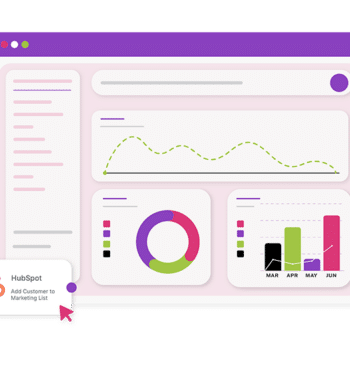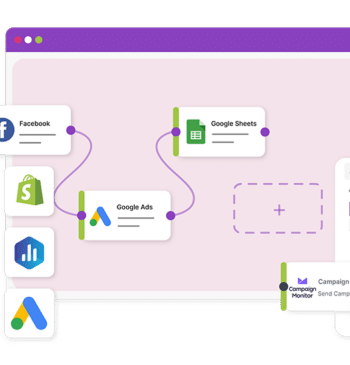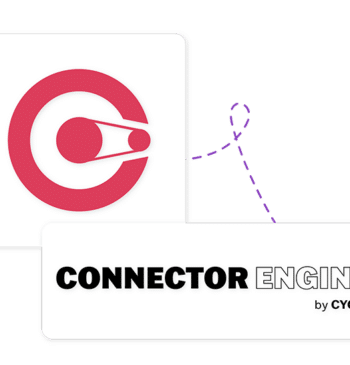03 Jul
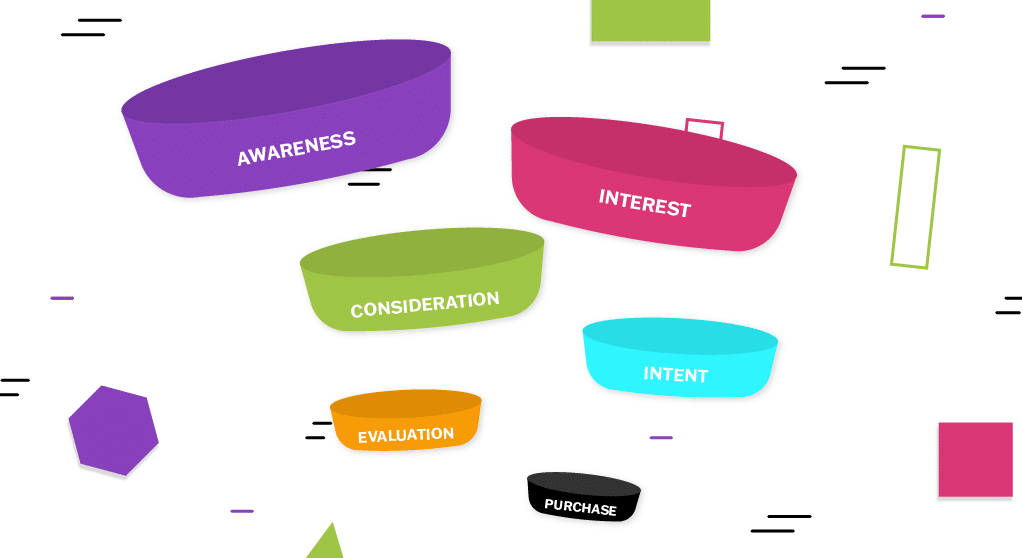
…
There is a lot going on in a sales and marketing funnel. For instance, there are tonnes of prospect and customer data moving around. This is multiplied for a digital marketing agency who are managing multiple different funnels for numerous clients.
Today I’ll be discussing each stage and how automated processes can be introduced to help a digital marketing agency. This can be achieved with an automation platform and tool.
Sales and Marketing Funnel Structure
The sales and marketing funnel, as I’m sure you well know is a process used to capture and describe the journey a potential customer will go through. Essentially, taking them from prospect to purchase.
Ultimately, the funnel is designed to be a lead magnet and increase sales for a B2C or B2B company. In this funnel, there are a number of stages that can vary from company to company, or B2C and B2B.
Stage 1 – Awareness
In this first stage of awareness, the prospect has become aware of your brand, product or service. This could have been through an event, advertisement, blog, webinar or social media.
These marketing campaigns are lead-generating and are a result of the target audience searching for information about how to solve a need or problem they have recognised.
Automate for Awareness
There are numerous ways a digital marketing agency could automate processes in the awareness stage. For example, automating the creation of social media posts when a new product has been added to an eCommerce site. As well as create a creative ad on a social media platform such as Facebook. Then attach a website audience from an insight tag onsite.
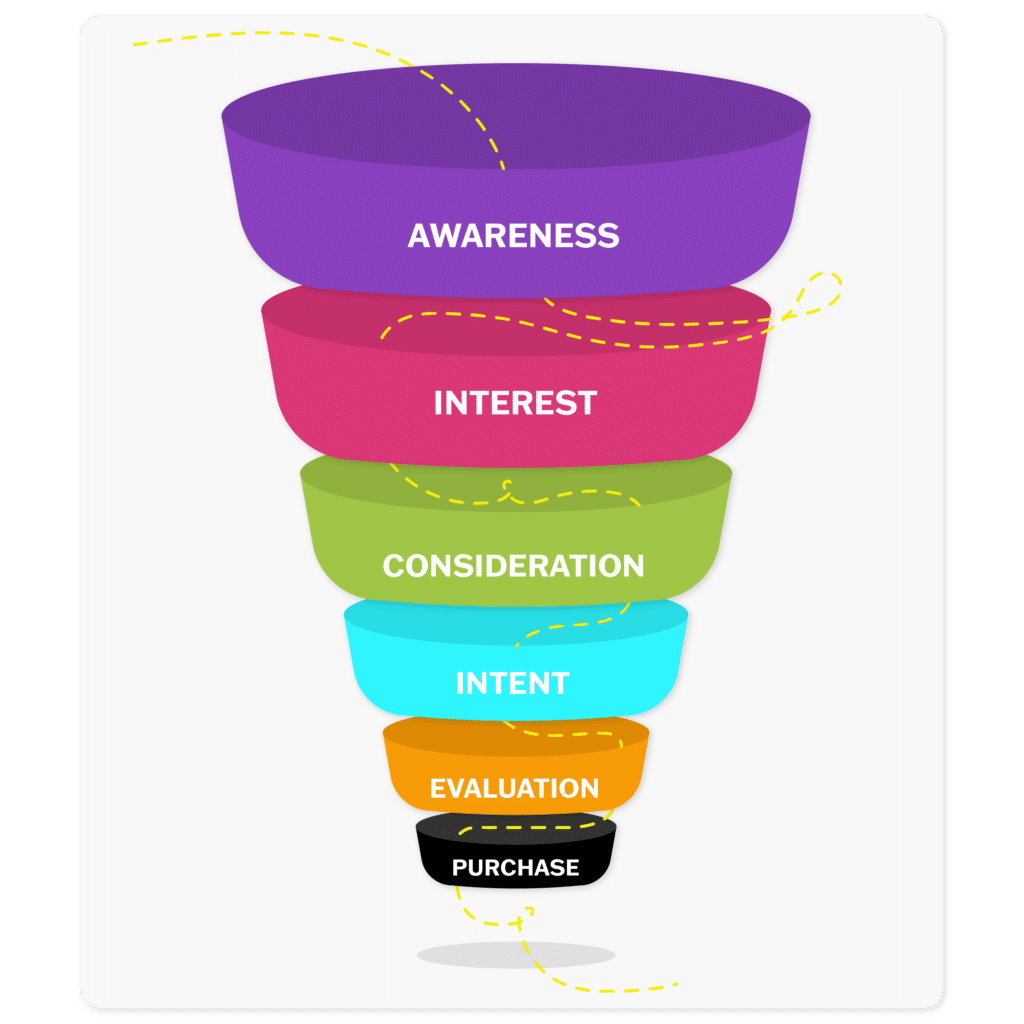
Not only that but a digital agency could automate the content creation process by using AI technology such as ChatGPT to develop blog post outlines, titles or keywords that need to be included. Once compiled these ideas can be automatically sent to a content writer via email or internal communication channels. As a result, saving research and development time.
Stage 2 – Interest
In the second stage of the funnel, a customer has expressed interest in your product or service. Their engagement has increased and this could be registered by examining a specific product or service and its reviews. As well as requesting specific information in the form of a downloadable, webinar or class. They could also subscribe to a newsletter for broader information about the product and organisation.
Automate for Interest
During the interest phase of the marketing and sales process, a marketing services agency can implement more automated processes to help streamline and reduce manual tasks.
For instance, by automating form fills on eCommerce sites that then add prospect details such as email addresses as leads into CRM software. As well as add these prospects to email communication lists, if opted in, to then receive personalised content to move them into the next stage of the funnel.
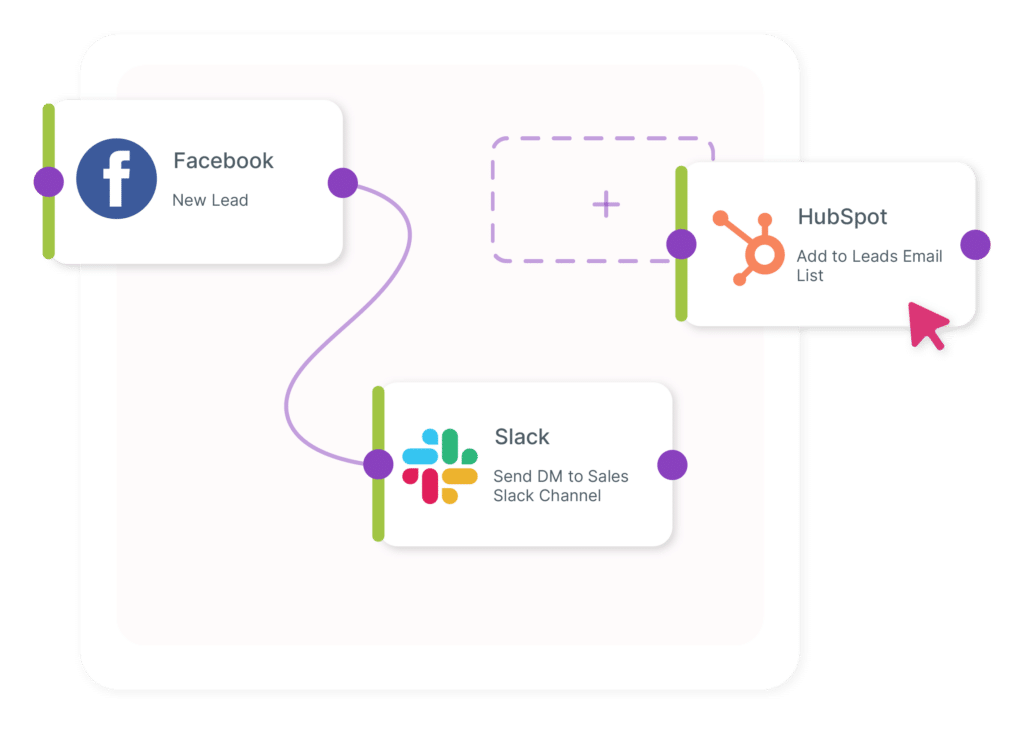
Stage 3 – Consideration
The next stage of the sales and marketing funnel is the consideration phase. This is an important stage and essential for the leads to be nurtured as it is where a buyer will share their research and other relevant information on the product or service with the appropriate stakeholders.
Their consideration can be helped by producing in-depth product/service information and specials such as eBooks and reports. As well as case studies, product demos and free trials.
Automate for Consideration
One useful way to automate this part of a client’s funnel is through email contact with the customer. This contact can be a result of the customer registering for a free trial. The email campaign can then notify them of the start period, provide mid-funnel content such as tips and tricks about the product as well as notify them when the trial is coming to an end.
In doing so this reduces the need for manual date checking and reduces the risks of human error.
Stage 4 – Intent
Right we’ve reached the start of the lower end of the funnel and customer journey, the intent stage. The nurtured leads will hopefully be heading towards purchase as they’ve now been added to a nurture stream by the sales team.
At this stage, they will be receiving product demos and customised proof of concept (POC). This POC will demonstrate the product or service in action to their use case as well as how it will aid them and their B2C or B2B company.
Automate for Intent
At this important nurturing stage of the funnel, there are useful automated processes that can help your client’s sales rep close a sale. For instance, automating meetings and calendars for efficiency. As well as attaching meeting notes to the prospect’s CRM profile to help understand their needs, company, etc.
Stage 5 – Evaluation
We’ve hit the sales aspect of the funnel and reached evaluation. At this stage, marketing and sales will work together to prove their product is the best and prospects will likely send a contract proposal to the prospect to sign.
Automate for Evaluation
For this, an automated workflow could be set up to send a contract to a customer after a trigger from them has been actioned. After this and once the contract has been signed it can notify the sales team via email or an internal communication channel that the sale has been won.
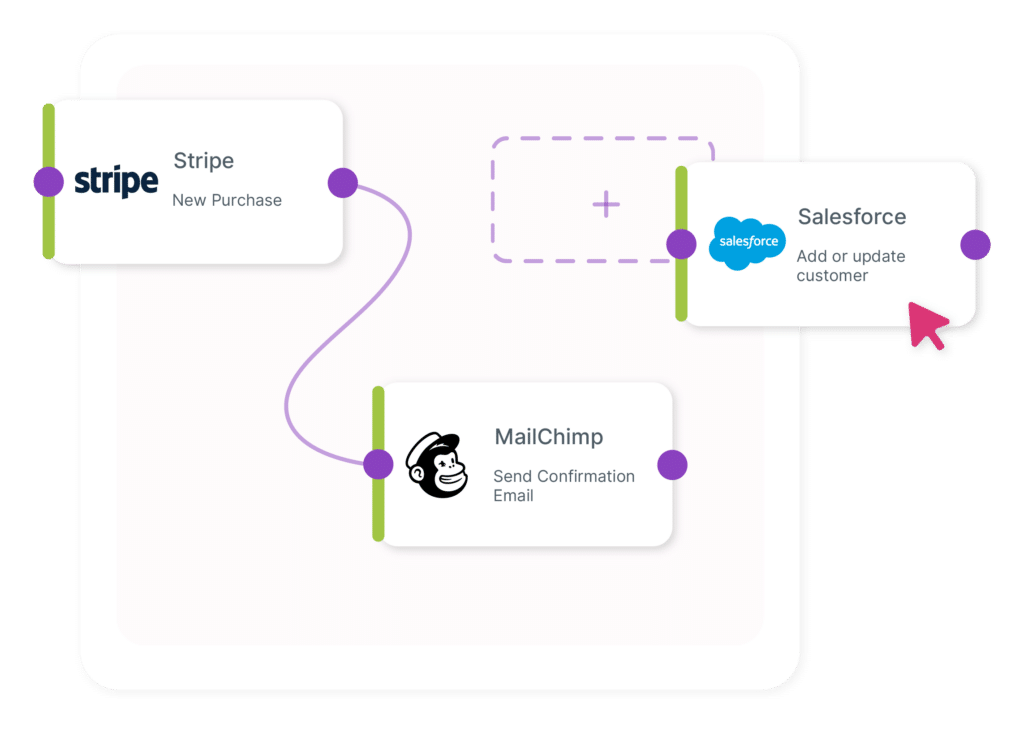
Stage 6 – Purchase
Finally, we’ve reached the purchase stage and this is where the transaction is complete. Now customers will go into a new funnel such as onboarding if the product is software.
Automate for Purchase
To seal the deal a workflow can return an email receipt or confirmation of purchase to the customer. Then add them to the onboarding cadence for the new product or service.
Why would a digital agency want to automate clients’ funnel?
So, why am I suggesting you, a digital marketing agency use an automation platform? Well, ultimately it could save you a hell of a lot of time.
Not only could it save you time but it could also help to streamline processes across your marketing services and improve your winning formula. As a result, gaining you a competitive advantage in the crowded marketplace, scoring new clients and most importantly retaining existing ones while driving revenue.
You could also benefit from:
- Streamlined and standardised processes and formulas
- Reduced resource requirements
- Responsive to demand highs and lows
- Improve client relationships with a better sales strategy end to end that increases their close rate
- Increase marketing efforts and help develop successful marketing campaigns
- Retain clients
- Gain a competitive edge over other digital agencies
I’m sure there are a million and one ways you could develop automated processes across the marketing and sales journey that I haven’t mentioned. That is the beauty of automated platforms and tools such as ConnectorEngine as they allow you to experiment, test and iterate to find the winning formula.
If you’d like to get in touch or have any suggestions I’d love to hear them as we are always keen to learn how you’d use an automation platform.
